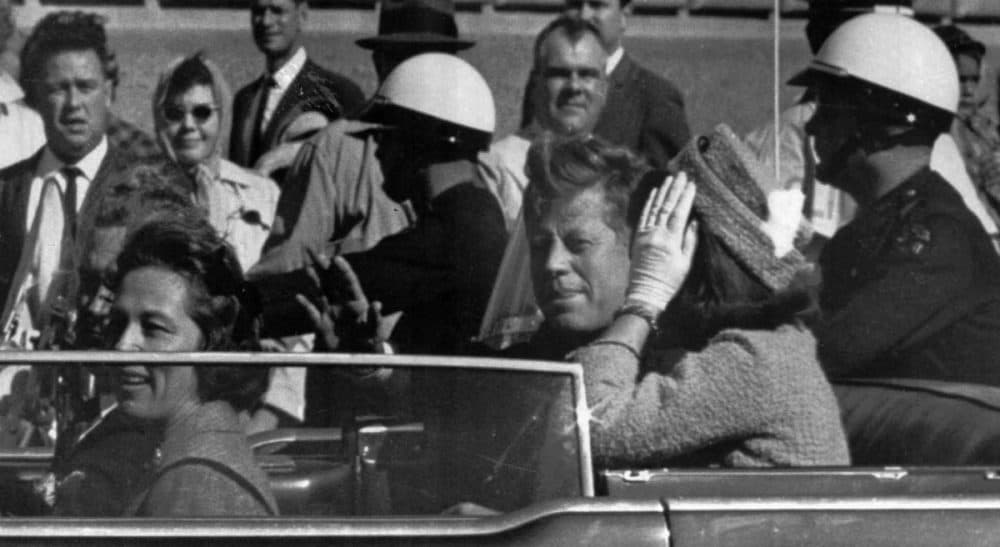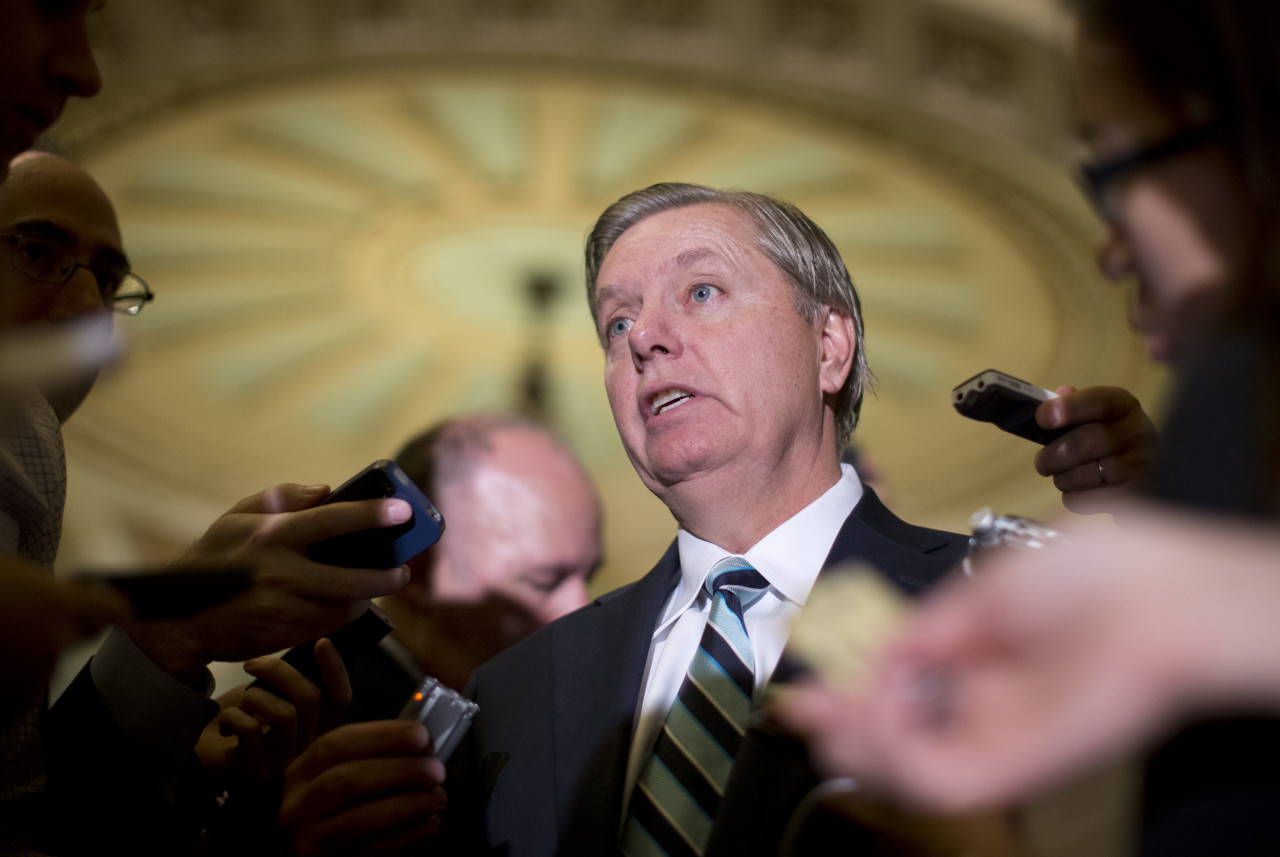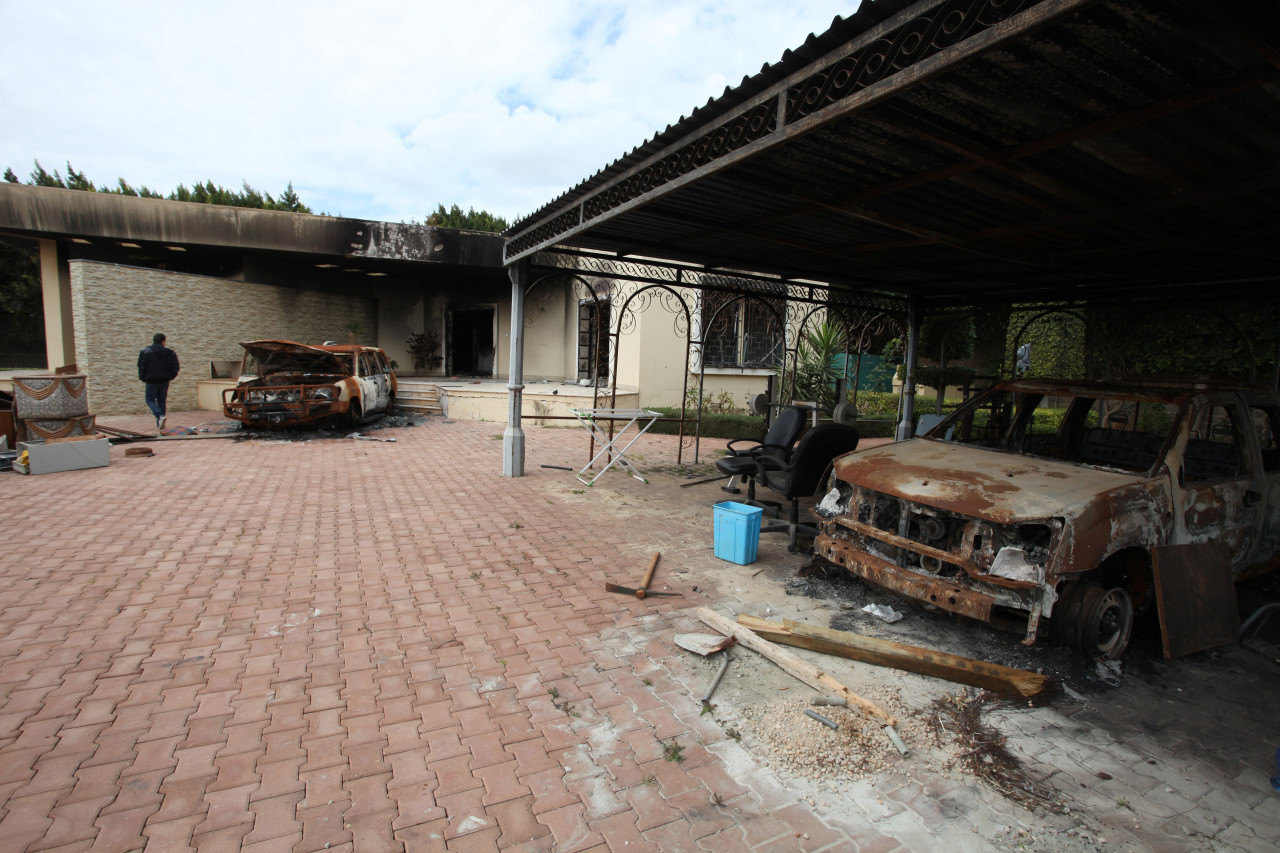Advertisement
The Truth About Conspiracy Theories

It’s seems only fitting that the recent House Intelligence Committee report on Benghazi was released on the eve of the anniversary of President Kennedy’s assassination. Rightly or wrongly, that November day in Dallas has spawned a national predilection for questioning the official version of events.
Today, cries of conspiracy are again in the air, voiced most notably by Sen. Lindsey Graham (R-SC). Mr. Graham is displeased that this latest of several Benghazi investigations concluded that there was no cover-up in the 2012 Libya attack and its aftermath. The senator apparently knows otherwise. What are we to make of his vehement insistence that this GOP-led report is a whitewash? Does his stance make him a truth-seeking pitbull, or a wild-eyed conspiracy theorist? And is there a difference?

Although some 60 percent of Americans still believe JFK’s 1963 assassination involved collusion, the term “conspiracy theory” has become dismissive shorthand for beliefs held by a deluded minority. That’s a distracting canard; while most conspiracy theories are clearly outlandish, there exist serious conspiracy researchers who are focused on unearthing facts, not constructing theories. But what’s really most damning about the pejorative “conspiracy theory” is the power of the stigma it attaches. It helps obfuscate what history continually brandishes in our faces: the establishment powerful, just like the powerless, regularly fashion narratives that support their preferred worldview — even when reality doesn’t.
Conspiracy theories may be unsettling but they are not without value. They serve as a kind of modern day myth-telling, in which dark forces and incomprehensible events are rendered explicable, however imperfectly, around the Internet campfire. In disrespecting received wisdom, they offer insight into the depths of a society’s trauma and the health of the social compact. Curiously, they often inordinately upset us, perhaps even more than episodes of proven official betrayal.
Too often we ignore what our nation-shaking scandals have repeatedly shown us: that conspiratorial thinking derived from an overheated mindset or paranoid worldview can arise in any group or individual. And conspiracies do happen, as Watergate in the 1970s and Iran-contra in the 1980s remind us. But for out-of-the-blue events (a botched office break-in, a Beirut newspaper item), combined with dogged journalistic follow-up, two of the country’s most closely held and shocking conspiracies might have remained secrets forever.
More recently, there was the mindset that gripped the White House during the build-up to the 2003 invasion of Iraq. America’s elite inner circle cobbled together a dubious narrative (African yellow cake uranium, mobile chemical labs, Iraqi ties to al-Qaida, aluminum tubes) as “proof” of Saddam Hussein’s WMD intentions. The nation’s power brokers showed themselves to be as capable of magical thinking as any marginal group.
As a democratic citizenry, we would be negligent, or comatose, not to mount a spirited review or offer alternative narratives in response to the chaos of the official record.
Our most notorious conspiracy lore, that surrounding the JFK assassination, is, of course, also replete with fevered imaginings. But decades of official stonewalling, misrepresentation and error are a big reason for that. As a democratic citizenry, we would be negligent, or comatose, not to mount a spirited review or offer alternative narratives in response to the chaos of the official record. We should recognize that dedicated citizen researchers (conspiracy theorists) and journalists have helped spur official investigations and uncover valuable information. Even “conspiracy-mongering” can prod disclosure: the clamor resulting from Oliver Stone’s 1991 film “JFK” compelled Congress to order the declassification of hundreds of thousands of documents. Perhaps a price we pay for the vigilance democracy requires is to tolerate the cuckoo theories to make room for those that merit further investigation.
Back to Senator Graham and his insistence there was conspiracy in the Benghazi matter. Perhaps his last best hope is the current Congressional select committee, chaired by Rep. Jason Chaffetz (R-Utah), that’s looking into Benghazi. Let’s wish them luck and sound judgment. Short of truly endangering lives or national security, anything or anyone that forces more disclosure from government is doing something positive. Because pursuit of cover-ups can help make that happen, here’s two cheers for conspiracy theories.
And then there is this fact, not theory, to keep in mind: high government officials, in engineering conspiracies themselves and fabricating conspiracies by others, have corroded our democracy. While so doing, they’ve confirmed that truth indeed can be stranger than fiction. But as conspiracy theorists well know, truth unrealized is even stranger still.

Related:
- House Panel Finds 'No Intelligence Failure' Before Benghazi Attack
- Here & Now: Cass Sunstein On Conspiracy Theories
- Cognoscenti's Izzat Jarudi: When Conspiracy Theories Become Dangerous
